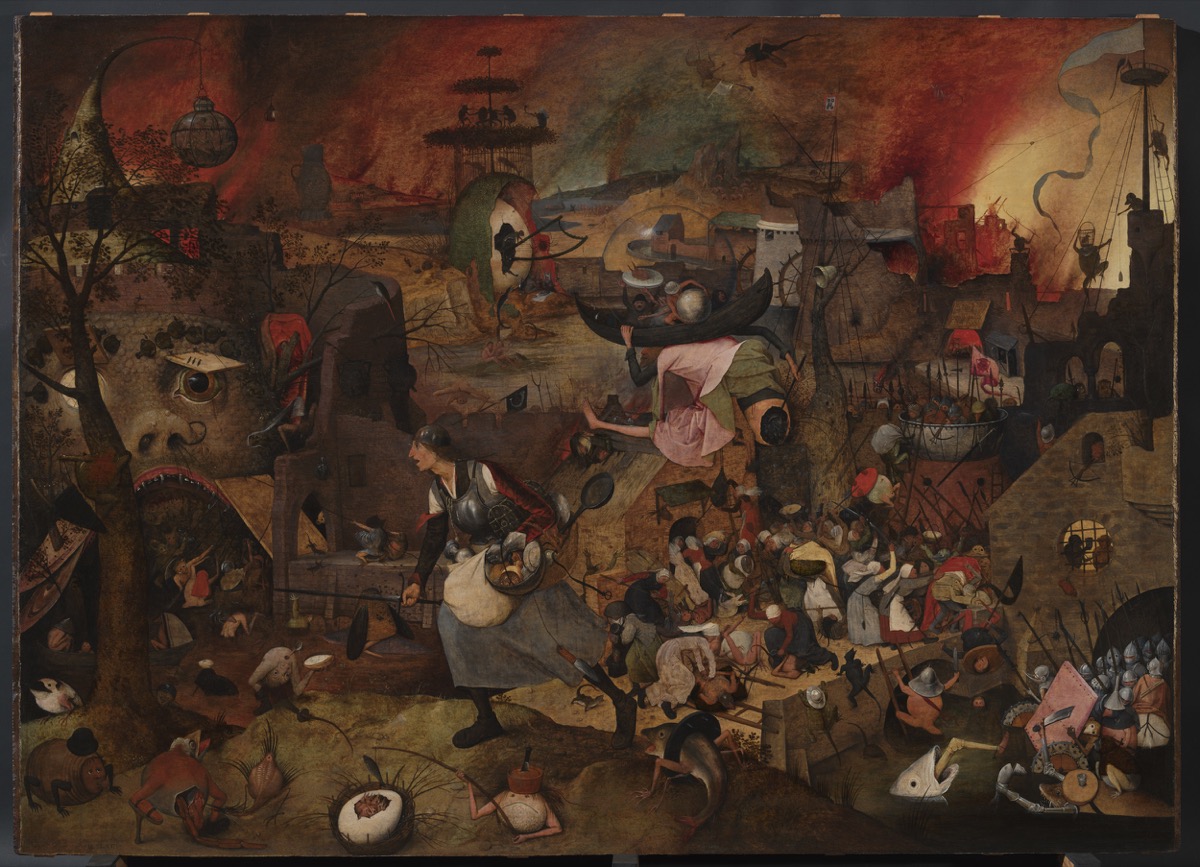What did Christians believe in hell throughout history?
After an introduction to the three main views on hell, we presented here the great names of history and what they defended on the subject. (Go to the introduction to view the index)
Isaac Watts (1674-1748)
Watts, the author of the hymn, had the traditional vision of hell as an eternal place of torment for the sinner, and often portrayed this view in his poetry. Watts wrote many hymns that focused on God as sovereign and majestic, including his just condemnation of sinners, a condemnation that the saved looked upon from heaven with joy:
Your hand is on rebellious kings
A firestorm spread
While we, under your protective wings
Your righteous revenge will love it.
His divine and moral songs for children are one of the first hymns written specifically for children (among them is one of his most famous hymns about God’s sovereignty, I sing God’s omnipotent strength), and many hymns found in him recall these children of their potential for condemnation.
Like Edwards, Watts used fear of hell as a motivating factor to encourage his listeners to repent. In one of his best-known hymns of divine and moral songs, we find the following verses:
There’s beyond the firmament
A paradise of joy and love;
And the holy children, when they die,
Go to this higher world
There’s a terrible hell
And pains that have no end:
There sinners live with demons
In the dark, the fire and the chains.
Can a bastard like me?
Escape from this damned fate?
And I can hope that when I die
Should I go up to heaven?
Then I’m going to read and pray
As long as you have life and encouragement,
So I wouldn’t go out today.
And sent to eternal death
Other hymns have emphasized the threat of hell as a reward for cursing and blaspheming against God, offending others, letting yourself be influenced by “sinful children,” lying, persisting in sin, and conforming to “bad ways” rather than standing firm in truth.
William’s Law (1686-1761)
Law is best known for his work A Serious Call to a Pious and Holy Life, a call to a moral life totally centered on God. The work had a major influence on the religious and cultural leaders of its time, from John Wesley to William Wilberforce. , Samuel Johnson and Edward Gibbon (whose children Law served for ten years as a teacher. Gibbon had an aversion to religion, but he respected Law). Although he always focused on the “religion of the heart,” his later writings, under the influence of mystic Jacob Boehme, became more mystical and speculative as he sought to explain Boehme’s ideas to a secular audience.
Law was a universalist who saw God’s punishment and love as the two sides of the same coin, both with the ultimate goal of eliminating sin and death from the world: and, if they will be long and long times of burning pain and stormy darkness given as the of many, or most of God’s apostate creatures , these ages will last only until the great fire of God has melted all arrogance in humility, and all that is of the Self is dead in the long agony and bloodied sweat of a lost God. What is that cross of Christ that saves all, who will never lose his redeeming power, until sin and sinners no longer have a name among God’s creatures?
Jonathan Edwards (1703-1758)
Part of Edwards’ vision of hell is etched in the minds of every high school student who has ever read his sermon on sinners at the hands of an angry God (?The God who sustains you above the abyss of hell like someone holding a spider. or another disgusting insect on a fire, hates you and feels terribly offended ??). Certainly Edwards confirmed traditional doctrines about the existence of hell, its torments, and its infinite duration. He also believes that our eternal destiny is decided in this life. ; change and growth can occur in heaven, but hell is a place of punishment, not purification or purification.
However, his vivid visions were preached in a broader context, in which he instilled in his listeners the glories of heaven, the majesty of God and his righteousness, and the need to escape the torments of hell:
“And now you have an extraordinary occasion, a day when Christ has kept the door of mercy wide open, and continues to call and cry aloud for the poor sinners who will come; a day when many will gather in their flock and be recruited Many come daily from the east, west, north and south; many, who for a long time were in the same miserable state in which you find yourself, are now in a happy state, with a heart full of joy. love for Him who loved and washed them of their sins with his own blood, and rejoiced in the hope of God’s glory.
What a terrible thing to be left behind on a day like this! Seeing so many others partying while you are trapped and perishing! To see so many people rejoice and sing with joy of heart, while you have reason to repent with sadness of heart, and Howl with agony of mind! How can you rest for a minute in such a condition? Isn’t your soul as precious as the souls of the people of Suffield, where people meet day after day with Christ?
Authorizations: You are authorized and encouraged to reproduce and distribute this material in any format, provided that you add the above information, do not edit the original content, and do not use it for commercial purposes.

